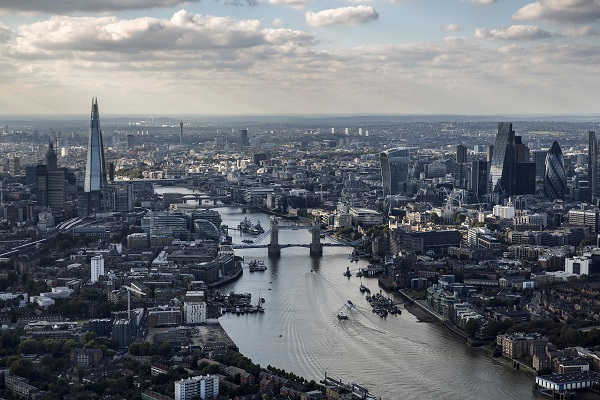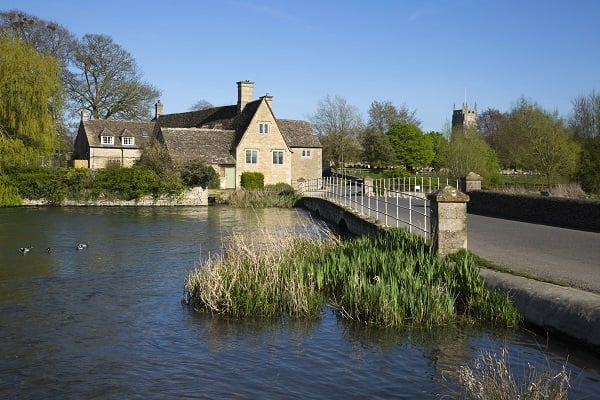What you need to know
The recent story about the Airbnb property tycoon who is raking in £12 million a year through more than 800 London properties has given anyone who is either in or thinking of getting into, the property market pause for thought.
Over the past decade of low-interest rates, a weak pound and ever-growing pension deficits, property has often been held up as something of a silver bullet for those looking for an investment that will generate income and at the same time appreciate in value.
Is it the perfect solution? If so, is London the best place to buy? And what about stamp duty? Here, we will seek answers to all these questions and more.
Why London?
It is one thing to say that property values are on the up, but the single most significant factor is location. There are several property hotspots dotted around the country, including cities such as Liverpool, Birmingham and Manchester, that have seen substantial investment over the past 20-years and are attracting ever more residents.
But none come close to the capital city regarding both annual increase in property value and the potential rental returns. Of course, there are two sides to every coin. Building a property empire in London also demands more investment than a cheaper area. Ultimately, the most important thing is to do your homework, and study property prices and trends closely.
The most successful investors correctly identify the next property hotspots before values start to soar. For example, 20-years ago, nobody wanted to live in locations like Dalston and Hackney, which were run-down, impoverished and suffered high crime rates. Today, regeneration has made them hugely desirable spots for young professionals. Investors who saw the potential and bought at the right time are now sitting pretty.
Does buy to let still make sense?
While a property portfolio was heralded as the perfect recession-buster in times of low-interest rates, how will changes in the economic landscape affect the proposition? There is no doubt that the recent increase in interest rates will have an impact on a landlord’s bottom line. However, this needs to be considered in the context of your overall property yield.
The average mortgage hike of around £22 per month brought about by the 0.25 per cent rise should not have a profound effect on the viability of your investment. But there are other economic factors to consider. Bear in mind that stamp duty is payable on second properties as follows:
- Up to £125,000 – 3 per cent
- £125,001 to £250,000 – 5 per cent
- £250,001 to £925,000 – 8 per cent
- £925,001 to £1.5 million – 13 per cent
- Over £1.5 million – 15 per cent
A modern two-bedroom apartment in Hackney would set you back something in the region of £600,000, meaning you would need to pay stamp duty of £3,750 + £6,250 + £28,000 = £38,000.
Does that mean buying high-value properties to rent is no longer viable? Not at all, it simply means that you need to do the mathematics in advance and factor the cost of stamp duty into your financial projections and your purchase negotiations.
Successful renting
Buying an attractive property in a decent location will get you a valuable fixed asset, but it will not automatically imply rental success. Here are some additional factors to bear in mind:
1. Type of property
We mentioned a two-bedroom flat earlier, and that was advisedly. There are all sorts of renters out there, but the most desirable sector is the young professional market. For one thing, there are plenty of people in this category, and for another, they are most likely to pay on time and leave the property in the same condition as they found it.
2. Smart, modern and low maintenance
Even the most well-vetted and professional tenants might not take as much care of a rented property as they could, so you need to focus on “smart but robust” when fitting it out. Laminate flooring and wooden window shutters tick all the boxes in this regard and make far more sense than carpets and curtains, which will become stained and damaged in next to no time
3. Adding value
Think about the things that a tenant really wants. For example, a parking space can be worth an absolute fortune in London and will add enormous value, while a garden will just be a maintenance hassle for the tenant (or indeed the landlord).
Who wants to be a millionaire?
There is no doubt that bricks and mortar still represents one of the safest investment options around. Just make sure you do your research, take professional advice and go into it with your eyes open, and you are ready to start building your London property portfolio.






Leave a Comment